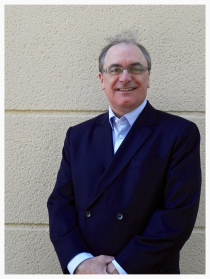
ARTICLE
Bad Witness Statements
A witness statement is a written statement signed by a person which contains the evidence which that person would be allowed to give orally (CPR 32.4). Seems simple but, as the White Book says (32.4.5), unfortunately, rules, practice directions and guidance as to the content of witness statements appear to be habitually ignored by practitioners. Periodically, the Court of Appeal and individual trial judges have criticised lawyers for overloading witness statements with material that should not be included.
In JD Wetherspoon plc v Harris Practice Note [2013] EWHC 1088 (Ch); [2013] 1 WLR 3296 a witness statement was struck out because it contained a recitation of facts based on the documents, commentary on those documents, argument, submissions and expressions of opinion (para 33 of the judgment). Sir Terence Etherton C went on:
39 [The witness] would not be allowed at trial to give oral evidence which merely recites the relevant events, of which he does not have direct knowledge, by reference to documents he has read. Nor would he be permitted at trial to advance arguments and make submissions which might be expected of an advocate rather than a witness of fact. These points are made clear in paragraph 7 of Appendix 9 to the Chancery Guide 7th ed (2013), which is as follows:
A witness statement should simply cover those issues, but only those issues, on which the party serving the statement wishes that witness to give evidence in chief. Thus it is not, for example, the function of a witness statement to provide a commentary on the documents in the trial bundle, nor to set out quotations from such documents, nor to engage in matters of argument. Witness statements should not deal with other matters merely because they may arise in the course of the trial.
40 Nor would [the witness] be permitted to give expert opinion evidence at the trial. A witness of fact may sometimes be able to give opinion evidence as part of his or her account of admissible factual evidence in order to provide a full and coherent explanation and account. ... [This witness], however, has expressed his opinions on market practice by way of commentary on facts of which he has no direct knowledge and of which he cannot give direct evidence. In that respect he is purporting to act exactly like an expert witness giving opinion evidence. Permission for such expert evidence has, however, been expressly refused.
41 I recognise, of course, that these rules as to witness statements and their contents are not rigid statutes. It is conceivable that in particular circumstances they may properly be relaxed in order to achieve the overriding objective in CPR r 1 of dealing with cases justly.
In Bar-On v Newlon Housing Trust (County Court at Clerkenwell & Shoreditch) 4th June 2018, unreported, DJ Rand struck out the statement of the Housing Trust’s principal witness for similar reasons. She commented that the witness statement was not unlike many others she had seen and, in all her time in practice and on the bench, she had never seen such an application to strike out for these kinds of flaws but mused that perhaps it should be done more. She said she saw nothing in the CPR, practice directions or guidance which would allow the witness statement to stand. She said it was more like a skeleton argument than a witness statement and suggested to counsel for the Housing Trust that perhaps he could use it that way in due course.
I have devised a training course on creating witness statements which covers these principles and more and which I can deliver at solicitors’ offices. Please contact my clerks if you are interested in this.


